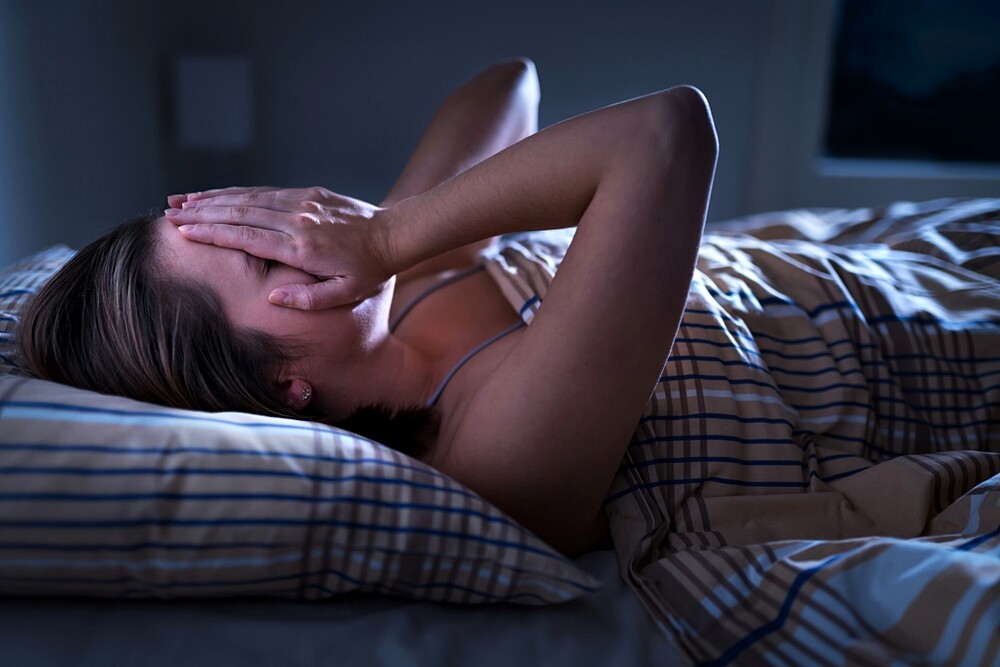Sleep disorders are a widespread problem. We will tell you here what causes insomnia and what helps against it.
Insomnia – What is that?
Anyone who has difficulty falling asleep or sleeping through the night at least three times a week for a period of between one and three months suffers from a lack of sleep (insomnia). Sleep disorders can have rather harmless, temporary causes, but can also be caused by illness. Poor sleep not only affects your mood but also your performance – so you should not wait too long before starting treatment.
Sleeping badly: only temporarily or permanently?
About one third of all Germans suffer from sleep disorders. Some sufferers lie awake for hours and cannot fall asleep, others have problems sleeping through the night and constantly wake up for no apparent reason. The mistakes that many people make: they take their poor sleep for granted or try to get their complaints under control with a sleeping pill. However, sleeping pills in particular are not suitable for long-term use for sleep disorders – which is why it is all the more important to find out the causes of sleep disorders and to remedy them with therapy.
Why is a good night’s sleep so important?
Besides the already mentioned influences on our mood and performance, there are other reasons why sufficient and good sleep is so important:
- Our brain processes the daily impressions during sleep and stores newly learned information in long-term memory. Sleep disorders in particular prevent this
- The body uses the bedtime for regeneration: e.g. messenger substances are released which break down the stress hormone cortisol, which prevents depression and burnout
- During sleep more defence cells are produced – these strengthen the immune system and protect against colds or shorten them
- Sleep actually makes you beautiful: growth hormones repair damage to tissue cells, tightening the skin
- Fat is broken down from the cells during sleep! So even “slim asleep” is not by chance – whoever sleeps too little tends to be overweight
- Lack of sleep can promote diabetes – so if you don’t want to get diabetic, make sure you sleep well
How much should I sleep?
Research is constantly coming up with new results regarding optimal sleep duration. Eight hours is often recommended, but how much healthy sleep you need varies from person to person. For some people, seven hours is enough, while others need eight hours. In the end, it all comes down to whether you feel fit and not tired after getting up.
Causes of sleep disorders
Everybody has a restless night now and then, because, for example, a lot of things happened during the day that are on your mind or because you are a little tense because of the important presentation the next day. It becomes difficult when the sleep disturbances last longer and affect the daily routine. The causes are many and varied – often these triggers lead to sleep disorders:
- Psychological complaints (e.g. stress, depressive mood)
- Habits that inhibit sleep, such as drinking lots of coffee, smoking or alcohol
- Poor sleeping environment (e.g. too much light, too warm or cold temperature)
- Disturbed sleep-wake rhythm (e.g. through shift work or jet lag)
- Certain drugs
- Hypothyroidism
- Respiratory diseases
- Pain (e.g. joint or headaches)
- Increased urge to urinate and therefore nightly toilet visits (often at an advanced age)
Diseases: Even more reasons for sleep disorders
In rare cases, the problem can also be teeth grinding, sleep apnoea (breathing stops) or restless leg syndrome (movement disorder of the legs).
What helps against insomnia?
As long as physical illnesses can be ruled out for sleep disorders, they can often be controlled with simple tips. So you can find your way back to sleep more easily:
- Lavender: The scent of lavender calms and relaxes. Simply dribble a drop of lavender oil on a cloth and place it next to the pillow to remedy sleep disorders
- Tea: Especially valerian and hops are known to help you fall asleep. However, the tea must be drunk regularly and over several weeks to have an effect
- Technique: Mobile phones and co. have no place in the bedroom, as the blue wavelengths of the light emitted by these devices can disturb sleep. Better: Switch off everything (including the TV) at least two hours before going to bed and read a book while still relaxed
- Temperature: Most people sleep best at a room temperature of 15 to 18 degrees
You’ll find even more help for healthy sleep in the article “Sleep better.”

